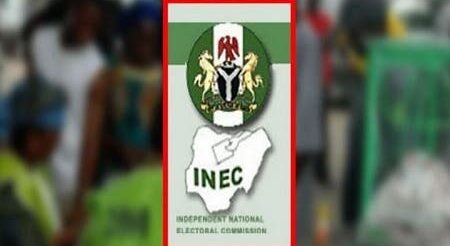There will be innovation to improve standard of electoral process in 2023 ― INEC | Tribune Online

The Independent National Electoral Commission (INEC) said, that the commission had prioritized the changes and innovation that will be cascaded to conduct the off-season governorship election and the 2023 general election.
The National Commissioner and Chairman of information and voter education, Barr Festus Okoye made this known in Lokoja on Thursday at the INEC/IFES workshop on the validation of INEC voters education manual.
He noted that the changes and innovation will be challenging but they are necessary to enhance the standard of the electoral process in the country.
According to him, the commission is poised to surmount whatever the challenges may be, in order to conduct elections that will receive the overwhelming endorsement of majority of Nigerians at all time.
On the polling units, he said in the next few days, the commission will conclude the consultative phase and release clear guidelines for the movement of voting points to decongest the existing ones.
“It is pertinent to explain that no Voting Point will be moved from one local government to another. It is also important to underscore the fact that the expansion of polling units will not confer any advantage to any State of the federation, other than decongesting existing polling units, degrading overcrowding, aid increase of voter turnout and improve the quality of legal services rendered by the Commission. The primary objective of all this is to make the voting experience more pleasant and less tedious for Nigerians,” he said.
Speaking on the voter registration, Okoye said the conduct of continuous voter registration exercise using an improved enrolment device is a top priority for the commission.
He assured that all registrable Nigerians will resume the continuous voter registration exercise as soon as the expansion of access to polling units is completed.
“In the new arrangement, new and some old registrants will have on offer, new, accessible and closer polling units. All polling units will have a lower threshold of 750 voters and an upper threshold of 1000.
For the registration of voters, he said the commission will always be guided by the law and the Constitution stressing that the commission will not impose or accept the imposition of extraneous registration requirements not in tandem with the constitution and the law.
On the new legal framework, Okoye opined that the Senate Committee of INEC and the House of Committee on Electoral Matters in collaboration with INEC have worked hard on a new electoral framework for the country.
He stressed that the new framework will address some of the challenges that have impeded the development of technology by the commission to enhance the quality of election in the country.
His words, “It will set a new paradigm for managing the registration of new political parties; streamline the focus of Courts in terms of the requisite jurisdiction in the adjudication of pre-election matters. The new framework will also make provision for early release of funds due to the commission.
YOU SHOULD NOT MISS THESE HEADLINES FROM NIGERIAN TRIBUNE
In spite of the huge investment in the water sector by the government and international organisations, water scarcity has grown to become a perennial nightmare for residents of Abeokuta, the Ogun State capital. This report x-rays the lives and experiences of residents in getting clean, potable and affordable water amidst the surge of COVID-19 cases in the state.
The Lagos-Ibadan railway was inaugurated recently for a full paid operation by the Nigerian Railway Corporation after about a year of free test-run. Our reporter joined the train to and fro Lagos from Ibadan and tells his experience in this report… innovation improve electoral process innovation improve electoral process
